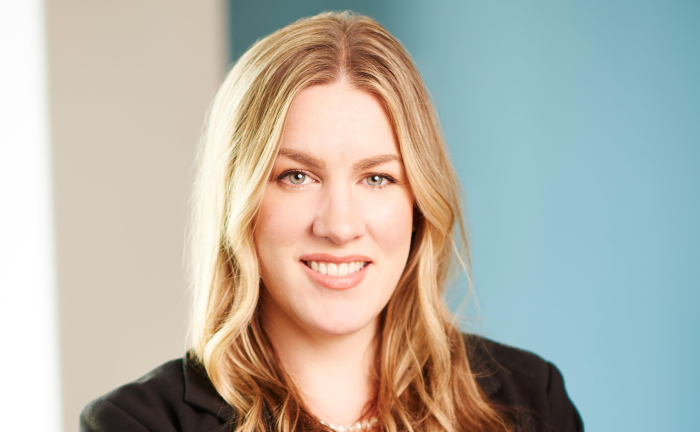Ask an Advisor: ‘Prove Me Wrong.' I Think Investing in CDs Is a Better Deal Than Working With an Advisor
Why hire a financial advisor who will take around 1% percent of your assets per year when you can get a certificate of deposit (CD) at over 5% with no fee? That alone amounts to a 6% return on your money. One can get a brokerage CD for two years at 5.5%, and with no fee, the return is 6.5%. I will take that any day instead of worrying about what the market is doing and can sleep at night. That’s especially true as a retired person who is not dollar-cost averaging anymore. Prove me wrong.
-Chris
While, at face value, a two-year certificate of deposit (CD) offers a seemingly low-risk, guaranteed return opportunity for savers and investors right now, a strategy that relies solely on CDs is unlikely to meet your needs and objectives.
Here are several points to consider before discounting the value of a successful advisor relationship and pursuing opportunities like CDs alone.
Looking for financial advice? SmartAsset’s free tool can help match you with potential advisors.
Is a CD the Right Choice for Your Goals, Objectives and Needs?
A trusted advisor can work with you to create and follow an asset allocation strategy that provides liquidity and flexibility while managing risk throughout the various stages of your life. A CD represents one tool an advisor may use. But allocating your investments across various investment types is more effective in managing risk.
Consider this: Before 2022, similar questions arose about going all in on S&P 500 index funds instead of working with an advisor. Because economic conditions have changed, that question has given way to one about CDs.
But despite the common tendency to pile into the opportunity du jour, studies have shown that proper asset allocation for your unique personal situation best protects you from over-exposure to any single sector, investment or risk factor in changing environments or at different life stages.
Yes, a retired individual will generally be suited to conservative investments. But retirees still face the risk of outliving their assets. And they need an asset allocation that addresses this. Thinking narrowly with a CD-only strategy could be imprudent when considering longevity risk, unexpected expenses in retirement and rapidly increasing healthcare costs.
If you’re ready to be matched with local advisors that can help you achieve your financial goals, get started now.
The Client-Advisor Relationship Extends Beyond Investments
Advisory fees can represent a worthwhile investment to clients given the comprehensive plan an advisor delivers and manages. This is where an advisor can add significant value. An advisor will approach your life plan holistically, factoring in Social Security, taxes, risk management, estate planning and other aspects of managing your assets.
Commonly, fees are paid as a percentage of your account value. If your advisor manages $100,000 for you and charges 1% annually, you’d pay her $1,000 per year. The question correctly assumes you would save this 1% by investing in the CD without an advisor. However, the savings do not add to your returns, as the question indicates.
Studies have shown that an advisor’s fee often pays for itself. According to Vanguard, the “alpha” an advisor can generate relative to an individual investor is estimated at 3% or more. This additional return more than covers the advisory fee. And the client reaps the additional benefit of wealth planning beyond just investments.
Investment Considerations Surrounding a CD
Even though CDs appear like a low-risk option, they are not risk-free and still expose you to the following risk types:
Reinvestment Risk
Reinvestment risk occurs when a similarly high rate might not be available at the end of the investment term. If rates pull back before your CD matures, you won’t be able to reinvest for the same interest rate.
Shifting Promotional Rates
Banks and credit unions often advertise promotional CD rates that expire after irregular terms and are automatically reinvested at standard rates. If, for example, you secure a 5.5% promotional rate, it may be in effect for a short time.
At the promotional period’s expiration, you may find yourself locked into a longer-term CD at a lower interest rate. For this reason, when evaluating whether to choose a CD of any duration, annual percentage rate (APR) estimates often decrease for longer terms.
Call Risk
Brokerage CDs, in particular, often carry the risk of being called. This means that if you purchase a CD from an issuer that anticipates interest rate declines, it may redeem your CD early, reducing your expected return.
Inflation and Real Returns
You will also want to consider inflation. At a 5% to 6% current rate, the real return on your CD’s nominal 5.5% rate is closer to 0%. A two-year CD investment alone will not preserve your purchasing power if inflation persists at current levels.
Liquidity Needs
CDs can tie your money up for months or years, depending on the term you select. If unexpected expenses occur, and you need to access your money, you may face stiff financial penalties for redeeming them early. A knowledgeable advisor will work with you to pursue various courses to mitigate these risks.
Bottom Line
For the first time in a long time, rates have risen to levels that make CDs and other fixed-income instruments appear more attractive. But a strategy that relies only on CDs is not right for everyone, including those in retirement. These instruments do not replace the value that a financial advisor can offer or eliminate all risks. The holistic approach an advisor takes to managing your wealth can increase your chances of achieving your financial goals.
Tips for Finding a Financial Advisor
Finding a financial advisor doesn’t have to be hard. SmartAsset’s free tool matches you with up to three vetted financial advisors who serve your area, and you can interview your advisor matches at no cost to decide which one is right for you. If you’re ready to find an advisor who can help you achieve your financial goals, get started now.
Consider a few advisors before settling on one. It’s important to make sure you find someone you trust to manage your money. As you consider your options, these are the questions you should ask an advisor to ensure you make the right choice.
Loraine Montanye, CFP®, AIF®, is a SmartAsset financial planning columnist and answers reader questions on personal finance topics. Got a question you’d like answered? Email AskAnAdvisor@smartasset.com and your question may be answered in a future column.
Loraine is a senior retirement plan advisor at DBR & CO. She has been compensated for this article. Additional resources from the author can be found at dbroot.com.
Photo credit: ©iStock.com/Perawit Boonchu, ©iStock.com/Charday Penn
The post Ask an Advisor: ‘Prove Me Wrong.’ I Think Investing in CDs Is a Better Deal Than Working With an Advisor appeared first on SmartAsset Blog.



